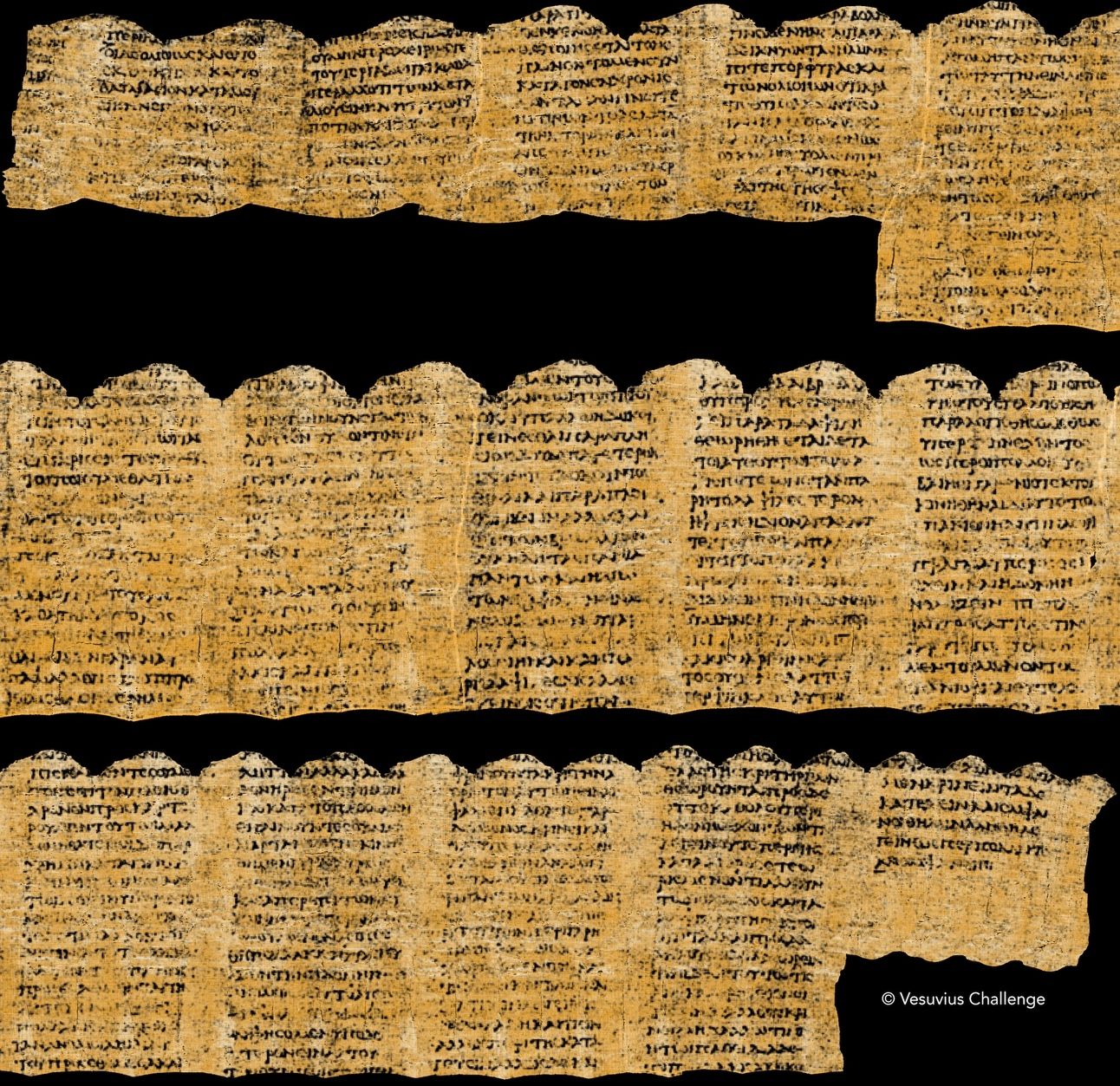- AI Rundown
- Posts
- AI Rundown by Lightscape Partners – 02/12/24
AI Rundown by Lightscape Partners – 02/12/24
AI deciphers a 2,000 year-old unreadable scroll, Meta prepares for election misinformation, Google tosses out its Bard branding, and much more.

Image credit: Vesuvius Challenge
Good morning, happy Monday, and welcome back to a new edition of the AI Rundown.
In addition to the latest and most important stories in artificial intelligence last week, I’ll be including resources going forward to those that are new to the space or those who would like to brush up on the terms and current landscape of the industry.
This week:
A 2,000 year-old scroll uncovered from the ashes of Pompeii has been deciphered using AI and computer vision in the one of the biggest breakthroughs in the space.
Meta expands AI image labelling ahead of the 2024 elections.
Google rebrands its Chat-GPT competitor, Bard, calling it Gemini, and announcing new and improved performance.
Get up to speed on the current landscape

Image credit: SONYA HUANG, PAT GRADY, Sequoia Capital
Top AI Developments of the Week
Students use AI to solve a 2,000-year-old mystery. Link.
Three students successfully used AI to read ancient Herculaneum papyri, ancient scrolls that previously unreadable due to damage from Mount Vesuvius's eruption in 79 A.D.
The winners will receive a $1 million reward as winners of the Vesuvius Challenge, funded by tech investors, billionaire quants and Silicon Valley luminaries.
The challenge demonstrated the potential of AI in unlocking historical mysteries and has sparked interest in applying similar approaches to other ancient texts, with the contest organizers planning to extend the challenge to recover 90% of the four scanned scrolls.
Meta expands AI image labelling ahead of the 2024 elections. Link.
Meta is expanding its labeling of AI-generated imagery on Facebook, Instagram, and Threads to include content created using external AI tools.
Meta has not disclosed specific figures regarding the amount of synthetic versus authentic content on its platforms.
The policy expansion will gradually roll out over the coming months in all supported languages, with Meta prioritizing markets based on election calendars globally.
Meta's detection relies on visible marks, invisible watermarks, and metadata embedded in synthetic images by AI technologies. However, detecting AI-generated videos and audio remains challenging due to the potential removal of these signals.
Google rebrands its AI chatbot Bard to “Gemini”, announcing more powerful features. Link
The Advanced model, previously known as "Ultra," aims to compete with OpenAI's GPT-4, claiming superior performance in internal benchmarks. It requires a subscription to Google's Google One AI Premium Plan at $19.99/month.
Gemini is integrated into Google Workspace and Google Cloud products, targeting enterprise customers and expanding AI's reach in daily business operations.
Google emphasizes Gemini Advanced's ability to outperform human experts in a wide range of subjects, aiming to create a comprehensive AI assistant capable of complex tasks and contextual understanding.
Venture
Ezra, an AI full body MRI startup, raises $21M backed by Bryan Johnston and others. Link.
Ezra aims to make MRIs mainstream for early disease detection despite medical concerns about over-diagnosis and over-treatment.
The round gives Ezra a valuation between $100 and $150 million.
Policy
Stability AI, Midjourney and Runway file motion to dismiss copyright lawsuit. Link.
Stability AI, Midjourney, Runway, and DeviantArt have filed motions to dismiss a copyright lawsuit, arguing AI models create new products, not direct copies of artworks.
The lawsuit, initiated by artists claiming unauthorized use of their works to train AI, saw previous dismissals due to copyright registration issues.
DeviantArt argues it's wrongly included as it doesn't produce AI art models, questioning its liability.
Runway and Stability AI counter claims of copyright infringement, emphasizing AI's transformative use of existing content under current copyright laws.
Midjourney clarifies its use of artist names and styles, arguing for the legitimate, transformative creation of new images, disputing direct infringement claims.
The FCC outlaws AI voice generation for robocalls ahead of the 2024 election. Link.
The new regulation allows the FCC to impose fines on violators, block service providers, and enables recipients and state attorneys general to take legal action against misuse.
The decision follows investigations into AI-generated robocalls that mimicked President Joe Biden's voice to discourage voting in New Hampshire's primary, highlighting the misuse of AI in influencing elections.
Experts warn that despite the FCC's ruling, voters should remain vigilant against personalized spam and disinformation campaigns, as technology evolves and bad actors continue to push boundaries.
Ethics in AI
Israel deploys AI-enabled military technology in Gaza war. Link.
The new defense technologies, such as AI-powered gunsights and robotic drones, are highlighted as both a threat and an opportunity for testing in combat.
Israel's use of AI in combat includes Smart Shooter's optic sights for drone interception and Robotican's drones for tunnel mapping, showcasing advanced capabilities in a context of high human rights concerns.
Over 150 countries have expressed concerns at the UN about challenges posed by new military technologies, including AI in weapon systems.
Thank you for reading the AI Rundown by Lightscape Partners. Stay tuned for the latest updates in the world of Artificial Intelligence!